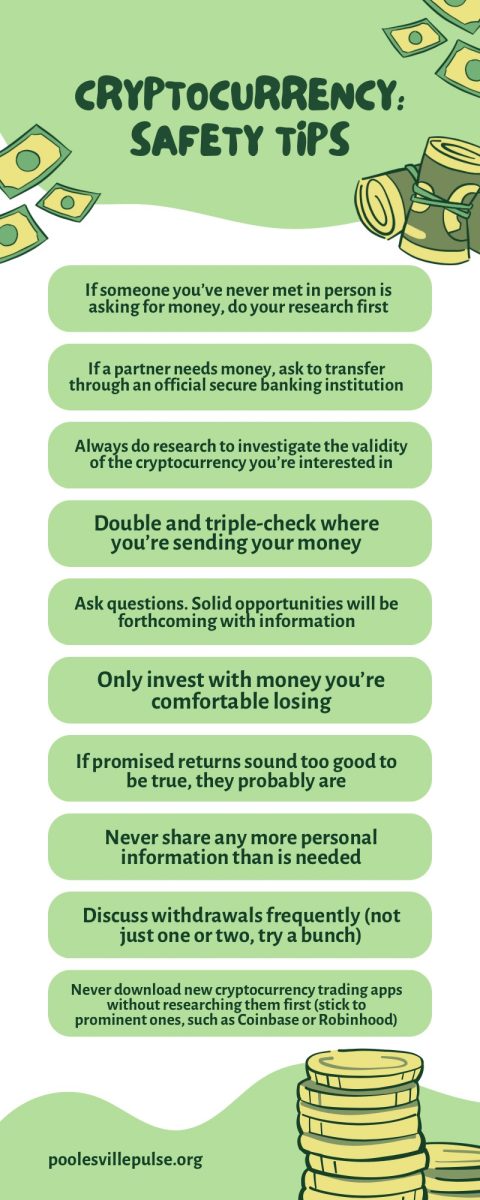The Federal Trade Commission (FTC) has reported a new rise in so-called “pig butchering” cryptocurrency scamming, the most prolific financial scam of our time. The estimated 2022 financial loss was $3.7 billion with individual fincancial losses averaging $10,000.
The alarmingly named “pig-butchering” scams are newly emerging romance cryptocurrency scams, where financial scammers will create fake accounts on dating sites to scout for potential victims. Once they have a target, they’ll initiate fake relationships with people and continue those relationships until they’ve gained their victim’s trust. Then, scammers will ask their victims to engage in cryptocurrency trade with them. This money transfer is usually posed as being direly needed, for life-saving surgery or to escape a bad situation. The romance scam got the name “pig-butchering scams” from how scammers will work to build a relationship with victims in the same way swine farmers coddle and fatten pigs before butchering them for their meat. Pig butchering scams have resulted in such intense financial losses that the FBI has begun a new initiative to prevent scamming.
Financial math teacher Justin Nowell, commented on what the FBI’s new initiative might mean for the future of cryptocurrency scamming in the United States.
“I think the FBI [initiative] indicates that the Federal Government will be introducing regulatory measures and laws soon in order to keep large scale scams from happening.” Nowell said.
The new FBI initiative is largely geared towards raising awareness, but, according to an interview done by NBC news reporter Ken Dilanian, with Supervisory Special Agent James Barnacle, head of the FBI’s Financial Crimes Section, the FBI has also been reviewing intelligence from banking institutions regarding suspicious transactions, leading them to begin contacting victims directly to prevent them from losing more money to scammers.
A prime example of this is seen from NBC news source, Barry May, who interviewed with NBC news reporter Ken Dilanian, for an article on rising pig-butchering scams and the FBI’s response. Barry May is a 62-year-old man, who liquidated his 401k and sent $500,000 to an online romance scammer calling herself “Ana” and told May she lived in New York, on Fifth Avenue. May was getting ready to get a loan from his banking institution to send even more money before the FBI stepped in, calling May directly, and instructing May that he should not do that, and that he was the victim of a cryptocurrency scam. The money he’d sent, the FBI told him, was lost. May was left with $10,000 to his name.
If the FBI’s new initiative does indicate further changes, consumers can expect for them to be far-off, as there has yet to be any introduction or mention of new cryptocurrency management or anti-scamming legislation in Congress.
While scams as a whole generally remain consistent in the amount of money that is taken from victims, in the past few years, cryptocurrency scams have begun to change this. According to the FBI’s Internet Crime Report for 2022, “cryptocurrency fraud rose from $907 million in 2021 to $2.57 billion in 2022.” Cryptocurrency investing scams alone have more than tripled the amount of money lost to financial scams per year.
NBC news source Supervisory Special Agent Barnacle also reported that the FBI had seen a loss of $3.5 billion in 2023, with individual losses into the $4 million range. The vast majority of this money, if not all of it, is unrecoverable.
Math Resource Teacher Kenneth Kramek shared further insight on the reasons behind the dangers of cryptocurrency scamming.
“Cryptocurrency is entirely unregulated, there’s no oversight.” Kramek said. “It’s like someone stealing cash from your wallet. No one is able to pursue criminal charges, because you don’t know who did it. Even then, there’s no way of proving it. There are no laws protecting against this type of scamming.”
In the past, money transfers (outside of cash transfers) have all been done through established channels, for instance, writing checks or wiring money– both of which are secure financial transactions through banking institutions with insurance and legal policy working to ensure the safety of consumers. Cryptocurrency changes the playing field. Because anyone anywhere at any time can create their own currency, there is no established governing body able to oversee and legitimize all of these transactions.
But does the U.S. Government itself have a responsibility to protect American citizens participating in online cryptocurrency trade and to decrease cryptocurrency scamming?
“Well, I think the question is, does the Government want to? The U.S. doesn’t want Bitcoin to take over and make the U.S. dollar worthless, and acknowledging Bitcoin helps to do that,” Kramek added, “there needs to be regulation, but it would have to be global regulation, not just country regulation as cryptocurrency is a global initiative. Governments would have to work together, and it’s difficult to see how countries would be able to regulate something so globally.”
Cryptocurrency scammers now have the ability to send mass messages to millions at once. This means that out of a million people, only a few need to reply in order for the scam to be considered a success. Scammers used to have to invest the time to individually target victims, meaning scams occurred with less frequency. But with new technology, modern cryptocurrency scammers can even write code to allow them to use dating sites to search for potential victims. According to Gitnux, a Global Commerce Media LLC company, only an estimated 10% of all dating profiles are estimated to be false; either being bots or romance scammers, and only 15% of victims of romance scams report them to the authorities. Despite this small percentage, the FTC numbers detail that the median individual reported cryptocurrency losses to romance scammers falls around $10,000.
Romance scams, while dangerous, fall second only to cryptocurrency investment scams in losses recorded. The Federal Trade Commission’s Consumer Protection Data Spotlight reported that 62% of investment scam losses recorded from people 18-59 were due to cryptocurrency losses. With investment scams on the rise, it’s more important than ever to take precautions towards protecting yourself and your data online.
SMCS Senior Akhil Raman shared some information regarding how he, as a student working with the cryptocurrency market, stays safe online.
“I definitely stay away from advice influencers give,” Raman said. “Other than [Dash and Bitcoin], I usually stay away from all the other cryptocurrencies that are promoted on Twitter. Pretty much 99% to 100% of those are scams. I also think it’s important to just be cautious about where you’re investing and to do your research beforehand.”




















